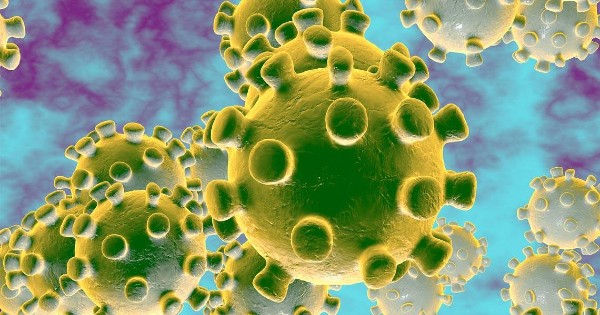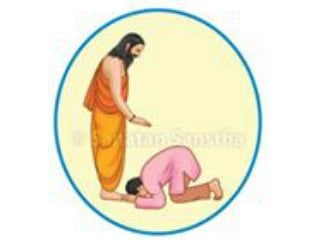1. What is the novel corona virus ?

The corona virus belongs to coronaviridae family of viruses and it can cause symptoms ranging from a simple cold to a serious respiratory infection.
2. How does this virus spread ?
A. 80% of the times this virus spreads through touch.
B. The virus spreads by touching the face, eyes and nose without washing hands after touching the objects in the international arrival waiting rooms, ticket counters, touching door handles, staircase railings or lift buttons contaminated by the virus.
C. Direct air-borne infection is less than 20%.
D. The probability of this virus spreading is greater in crowded places, schools, airplanes, air conditioned buses, trains, etc.
3. Symptoms of the viral infection
Fever, cough, difficulty in breathing, diarrhea etc. within 2 to 14 days of being infected.
4. Daily restrictions to be observed to prevent the disease
4 A. Do not touch your eyes, nose or face without washing hands.
4 B. Wash your hands with soap and running tap water.
1. Before, during and after cooking
2. Before eating
3. After using the washroom
4. When the hands are not too dirty a sanitiser is sufficient but if very dirty wash with soap and running water.
5. After contact with animals, their food or excreta
6. Shaking hands with others
7. Coughing/sneezing
8. Touching a patient
4 C. Precautions to be taken when coughing or sneezing
4 C 1. When coughing or sneezing use a tissue paper, handkerchief or cough in the sleeve of the shirt/dress [at the elbow joint of hand] (never use your hand).
4 C 2. Immediately throw the tissue paper into the dustbin and cover it.
4 C 3. Health workers should immediately wash hands with soap and water or use a sanitiser after coughing or sneezing.
4 C 4. Precautions to be taken when cooking
A. Wash hands after handling the uncooked food and before handling the cooked food.
B. Avoid contact with sick animals and putrid meat.
C. Avoid contact with stray animals, disposable products and fluids from the market.
D. Avoid contact with live wild, domesticated or animals used in farming without using protection.
E. When handling animals or their products use protective aprons, gloves or masks.
F. Avoid meat in areas where the viral infection is rampant. If you have to consume it then ensure that it is properly cooked. Also handle cooked food with caution.
G. Avoid contact with infected individuals.
H. Avoid spitting in public places.
I. After duty hours discard the protective clothing. Wash the apron daily and keep it at the workplace.
J. On returning home avoid contact with the clothes and shoes drenched in sweat with rest of the family members.
K. Avoid travelling to China or South Asian regions affected by this disease.
5. What to do if symptoms of the disease are noticed ?
A. In case of fever, cough or difficulty in breathing seek medical help immediately.
B. Record the travel history of the patient, if any.
6. Correct technique of using a mask as a protective measure
A. A three layered surgical mask is 90% effective.
B. Use a mask when ill, in contact with sick individuals, in hospital or crowded places.
C. A mask should be discarded within 4 to 6 hours of use.
7. Some other important do’s and don’ts
A. Remain at an arm’s length from a sick individual.
B. Ensure that your environment is well lit and ventilated.
C. Wipe exposed parts of objects used by you with 1% anti-bacterial Isol solution.
D. Ensure that you get adequate sleep.
E. Drink plenty of water and eat nutritious food.
8. Generally two types of masks are used to prevent infection
8 A. Surgical mask
1. These are cloth masks and are easily available and are used mainly to prevent germs from the nose and mouth from being expelled into the environment. People with cold or cough should use masks to prevent spread of the infection through droplets.
2. Sometimes the mask is ill-fitting and does not cover the mouth properly hence it does not serve the purpose of preventing from getting infected from external source of organisma via nose.
3. While using a mask ensure that it is covering the nose and mouth completely.
4. While wearing a mask or removing it, use the elastic, do not touch its anterior part. This is to prevent germs from the hands from settling on the mask.
5. Use a new mask every day. Using the same mask for several days poses a risk for infection.
6. Discard the mask after 7 to 8 hours of use. The masks need to be disposed off appropriately.
7. Though masks give only limited protection they should certainly be used in crowded places.
8. In case of non-availability of a mask cover the nose and mouth with a large handkerchief folded in a triangular fashion. It can be reused daily by washing in hot water and detergent.
8 B. The N95 mask
1. This mask is expensive. It is of two types – disposable and reusable by changing the filter within it. The filter prevents the virus from entering the respiratory tract.
2. These masks block infective agents, fine dust particles and poisonous gases.
3. Doctors treating patients infected with the corona virus or other viruses, health workers and all others in contact with these patients should use these masks.
4. The common man without any symptoms need not use this mask for self-protection.
9. Precautions to be taken to prevent infection
Simply out of fear, people without symptoms of fever, cough, cold etc. should not use a mask. Instead they should take other precautions such as avoiding crowds, shaking hands, touching the face with the hands etc. to prevent infection. Washing hands repeatedly, covering the mouth with a handkerchief or the elbow instead of hands when sneezing or coughing serves as a preventive measure. In case of a sore throat do gargles with lukewarm salt and turmericmixed water.
Dr. Pandurang Marathe, Sanatan ashram, Ramnathi, Goa
10. Homeopathic remedies to control the corona virus
The impact of the corona virus is growing with serious effects. This virus has created chaos worldwide. Through a circular the Ayush Ministry of Govt of India has recommended intake of 3 pills of Arsenic Alb30 (homeopathy medicine) on an empty stomach in the morning, for 3 successive days, to prevent infection with and spread of the virus. These pills are available in any homeopathic pharmacy.

 Sanatan Sanstha organises ‘Sanatan Culture Exhibition’ at the Kumbh Mela!
Sanatan Sanstha organises ‘Sanatan Culture Exhibition’ at the Kumbh Mela! Mahamandaleshwar Swami Pranavanand Saraswati Maharaj inaugurated Sanatan Sanstha’s ‘Sanatan Dharmashiksha’ exhibition at Prayagraj Maha Kumbh...
Mahamandaleshwar Swami Pranavanand Saraswati Maharaj inaugurated Sanatan Sanstha’s ‘Sanatan Dharmashiksha’ exhibition at Prayagraj Maha Kumbh... Goa : Felicitation Ceremony of H.H. Swami Govinddev Giri Maharaj
Goa : Felicitation Ceremony of H.H. Swami Govinddev Giri Maharaj Gujarat’s ‘Samanvay Parivar’ honours Sanatan Sanstha for its outstanding work of Dharmaprasar, conferred by Gujarat’s...
Gujarat’s ‘Samanvay Parivar’ honours Sanatan Sanstha for its outstanding work of Dharmaprasar, conferred by Gujarat’s... Samanvay Parivar organisation honours Sanatan Sanstha, award conferred by Gujarat Chief Minister Bhupendrabhai Patel
Samanvay Parivar organisation honours Sanatan Sanstha, award conferred by Gujarat Chief Minister Bhupendrabhai Patel Sanatan’s Gujarati eBook ‘Introduction to Spirituality’ launched in Vaishvik Hindu Rashtra Mahotsav
Sanatan’s Gujarati eBook ‘Introduction to Spirituality’ launched in Vaishvik Hindu Rashtra Mahotsav